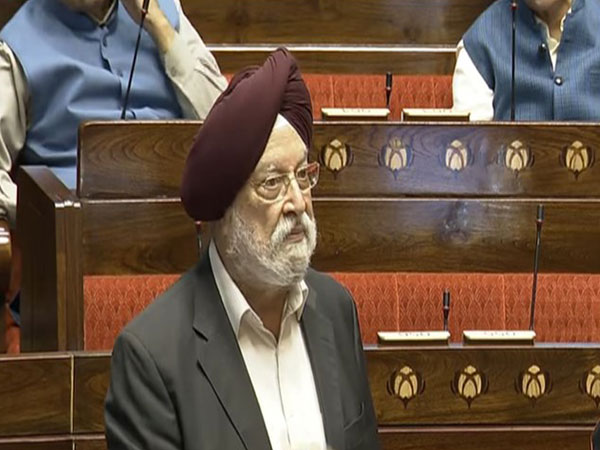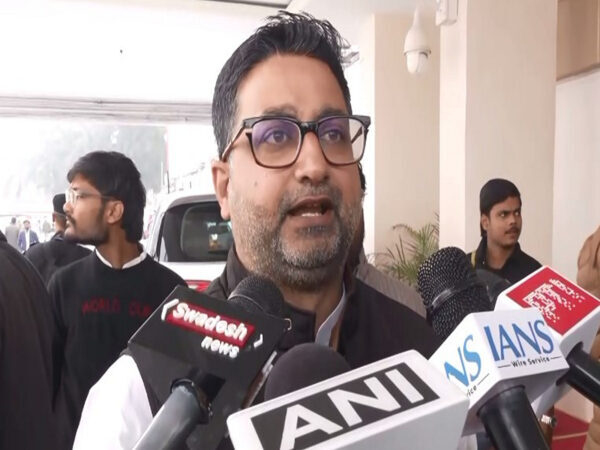
Hardeep Puri Welcomes Passage Of Oilfields (Regulation and Development) Amendment Bill
Union Petroleum and Natural Gas Minister Hardeep Singh Puri on Tuesday expressed his happiness over the passage of Oilfields (Regulation and Development) Amendment Bill, 2024 in the Rajya Sabha, calling it a “historic step into the future.”
“The epochal amendments proposed will further strengthen and propel India’s energy sector under the leadership of PM Sh @narendramodi Ji and ensure policy stability, international arbitration, extended lease periods, etc.,” the Union Minister said in a series of post on X.
The Oilfields (Regulation and Development) Amendment Bill, 2024, expands the definition of mineral oils to include petroleum and natural gas. The bill was introduced by Union petroleum and natural gas minister Hardeep Singh Puri for consideration and passing.
The Bill will regulate the exploration and extraction of natural gas and petroleum. The amended bill expands the definition of mineral oils to include petroleum and natural gas in it.The amended bill includes any naturally occurring hydrocarbon, coal bed methane, and shale gas/oil in the category of mineral oils. However, it clarifies that mineral oils will not include coal, lignite or helium.The amended bill also provides for mining leases, this will include various activities such as exploration, prospecting, production, making merchantable, and disposal of mineral oils.
Further in his post on X, Union Minister Puri highlighted that since petroleum (crude oil/natural gas) is found in the pore spaces of subsurface rocks and is extracted by drilling, delinking of terms like ‘mine,’ ‘quarried,’ or ‘excavated’ as referred to in the current act will remove ambiguity and introduce ease of doing business into the sector, which is more technologically driven.
“The term ‘mineral oil’ is traditionally understood to be natural gas and petroleum. As unconventional hydrocarbon resources have been discovered and developed, the definition needs to be updated to reflect the modern understanding of the term,” he added.
Puri also noted that the definition of mining lease is being amended to clarify that leases granted prior to the commencement of the Oilfields (Regulation and Development) Amendment Act will be called mining leases. “Thereafter, the use of said terminology will be discontinued, and the term petroleum lease, as defined in clause (f), shall be used,” he added.
The Union Minister emphasized the significance of the amendments, saying, “the move will encourage the investors for holistic development of the field, including planning for proper reservoir management practices as well as confidence to induct capital-intensive enhanced recovery methods.”
“The provision seeks to empower the government to make rules for the protection of the environment and promoting the development of green energy projects and the adoption of energy transition measures to enable the government and the companies to achieve their climate vision,” he said.
Puri further said that the benefits of the act to the small operators and new entrants, adding that provisions of the act enable the GoI to make rules to enable sharing of production and processing facilities and other infrastructure by two or more lessees.
“Small operators and new entrants often face difficulties in carrying out operations due to high costs of infrastructure and facilities. This provision enables the GoI to make rules to enable sharing of production and processing facilities and other infrastructure by two or more lessees,” he added.
The amendments proposed in the Oilfields (Regulation and Development) Act 1948 seek to assure the investor that the terms of the lease shall remain stable for the entire duration of the lease and will not be altered to its disadvantage, Puri pointed out.
The new bill will replace the mining lease with a petroleum lease to cover a similar set of activities. However, existing mining leases granted under the old Act will continue to be valid.
The new bill will empower the central government to make rules on several matters, like regulating the grant of leases, terms and conditions of leases, including the minimum and the maximum area and the period of the lease, conservation and development of mineral oils, methods for producing oil, and manner of collection of royalties, fees, and taxes.
The proposal also empowers the central government to make rules on the merger and combination of petroleum leases, sharing of production and processing facilities, obligations of lessees towards protecting the environment and reducing emissions, and alternative mechanisms for resolving disputes in relation to the grant of petroleum leases.
For cases of violation of rules, the bill provides to hike the punishment and penalty from a current fine of Rs 1000 to Rs 25 lakhs. In cases of exploring, prospecting, and production without a valid lease, a penalty of Rs 25 lakhs and continued violations will attract a penalty of Rs 10 lakh per day.
For dispute resolution, the central government will appoint an officer of the rank of joint secretary or above for adjudication of penalties. Appeals against the decision of the adjudication officer can be filed at the appellate tribunal specified in the Petroleum and Natural Gas Board Regulatory Board Act, 2006. (ANI)



